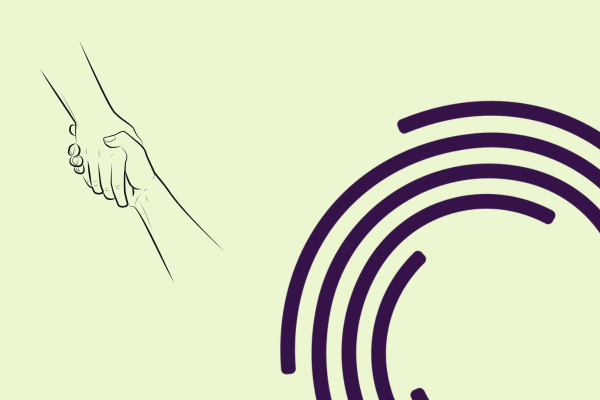Staff: Megan Ahlburn, Angela Kelly, and Jennifer Cyran
Every day, HRiA’s 24/7 Substance Use Helplines receive calls from people urgently seeking treatment and support for themselves or loved ones. Many have faced repeated setbacks and are reaching out, hoping for immediate help. Recently, a caller to our Illinois Helpline shared a powerful reflection “When people need help, they must receive it in that moment, and not to just wait until tomorrow. When [I’ve had to wait to get a treatment], I went right back out and started using drugs again. There should be a way for you to help that person right then and there.” This insight underscores a critical truth: timely access to care can be lifesaving.
Fortunately, this individual is now among the 5,500 people we have connected to MAR Now (Medication-Assisted Recovery Now), an immediate, effective form of care for Alcohol Use Disorder (AUD) and Opioid Use Disorder (OUD). With support from HRiA’s Innovation Incubator, we are expanding the impact of this initiative to new communities – ensuring more people can access compassionate, effective care without delay.
MAR Now Eliminates Common Obstacles
MAR Now is a unique, 24/7 program that eliminates common obstacles to substance use treatment—no long wait times, no transportation hurdles, no insurance or documentation required. It connects individuals directly to a telehealth provider for same-day access to Medication-Assisted Recovery (MAR) for AUD and OUD.
Launched in 2022 with leadership from the Chicago Department of Public Health, MAR Now has grown into a statewide collaboration between public health, human services, and treatment providers. The service is primarily implemented through the Illinois Helpline (operated by HRiA) and Family Guidance Centers, Inc., with local partners across the state, and funded by the Illinois Department of Human Services Division of Behavioral Health & Recovery (IDHS-DBHR).
Thousands have already benefited, receiving life-saving medications like buprenorphine, methadone, or naltrexone within hours of their initial call. These treatments reduce cravings and withdrawal symptoms, helping people stabilize while continuing daily responsibilities without needing inpatient care.
After the initial connection, care coordinators follow up to ensure ongoing support. Early data shows:
- 98% of MAR Now participants attend their first provider visit.
- Significant improvements in health, relationships, mental well-being, and substance use outcomes.
Our Progress thus Far
A comprehensive study, including data gathering, a literature review, and interviews, was the first phase of the MAR Now Expansion Project. It revealed powerful insights through discussions with staff, providers, former clients, and program and policy leaders involved in its development and implementation. These conversations illuminated what makes MAR Now unique: immediate, low-barrier access to recovery support that meets people where they are.
Former clients shared how MAR Now helped them overcome obstacles that previously prevented them from engaging in treatment, and how the program’s flexibility and accessibility made it stand out from other recovery pathways they had tried.
One client shared, “It was a seamless and quick feel-good-about-yourself process. I really can’t describe what a relief it was.”
Beyond practical access, interviewees emphasized the program’s compassionate, nonjudgmental approach. In a space where stigma often prevents people from seeking help, MAR Now offers dignity and respect.
As one interviewee shared, “When I called, I didn’t feel stigma or judged and sometimes when you call these places there can be stigma and judging with things like that and I didn’t feel that at all when I called the Helpline and MAR Now.”
What We’re Learning
This phase of the MAR Now Expansion Project surfaced several learnings that will guide the development of actionable resources moving forward:
- Removing Barriers to Treatment. Emphasize the urgency of reducing barriers before someone seeks help. Individuals struggling with opioid or alcohol use disorders need treatment immediately. Delays caused by paperwork, waitlists, transportation, insurance gaps, or stigma can be life-threatening.
- OUD vs AUD Utilization. While MAR Now began as a service for people seeking treatment for OUD, it now supports people experiencing AUD as well. Yet, utilization remains higher for OUD—highlighting a need to raise awareness and expand access for those with AUD.
- Grounding in Shared Purpose. Members of our team who are in long-term recovery and/or who have lost immediate family members to substance use were deeply involved in leading client interviews, with support from our Research & Evaluation team. Hearing how MAR Now changed individuals’ lives months or years after initial contact has been deeply motivating.
Next Steps
In Year Two, we’re focused on scaling impact through the following:
Sharing Our Findings
We will deepen our understanding of MAR Now’s effectiveness through sharing our findings from the expanded data analysis, literature review, and interviews that center human impact that we conducted in Year One.
Implementation Toolkit
We’re developing a practical resources toolkit to help public health agencies and providers adapt and apply the MAR Now model in their communities.
Strategic Outreach
We’ll promote the toolkit and study to expand awareness, drive adoption, and strengthen systems of care.
By combining solid research and useful tools for implementation, the MAR Now Expansion Project aims to scale and sustain this innovative model across diverse communities nationwide.
